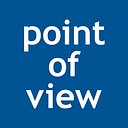Approaching Challenges as a Finance, DEI, and C-Suite Expert — In Conversation with June Collison
In order to lead an organization successfully, the ability to approach challenges effectively with the expertise you’ve built upon for years is key. Experience in any functions other than your own only strengthens the capability to perform within your role creatively and with a holistic perspective.
We’re in conversation with June Collison, a values oriented, positive impact creator. Driven by solutions and highly experienced as a diversity advocate, June is a seasoned senior healthcare executive with over 25 years of experience.
June, you are someone who brings unique added value to a boardroom — your extensive experience with DEI, your background in finance, and your background as a C-suite executive. How do these three perspectives come together to shape your views on different issues? How do they shape the way you approach challenges and create holistic solutions?
“I am very fortunate to have such a background. I started off as a Chief Financial Officer in this world of health care, followed by being a Chief Operating Officer and Chief Executive Officer before my current role. My time in these roles deeply strengthened and shaped my background, particularly as a woman of color, so that I could be prepared for any challenges in my path.
“With my foundational time as CFO, I understand finance — today, I can audit for a business. During my time as COO, I’d developed a strong knowledge of operations. And, due to my time as CEO, I understand strategy development and execution. These three roles I’ve undertaken have shaped me into being an ideal C-suite executive — I’ve performed effectively in every executive role and fully understand the depth and breadth within the C-suite. Finally, my time as a diversity advocate within each of these roles has refined my DEI expertise.
“One experience in particular comes to mind as an example of the benefits of my background. Not long after I’d started my current position, I had made an overarching rule — ‘no overtime.’ At this point, my prior experiences had demonstrated to me that overtime is not a necessity for an organization in order for them to perform effectively. Not long after, an issue was brought up to me at the ‘Jammin’ with June’ event I’d created to foster collaboration among line staff. An attendee came up to me and asked about one department’s use of excessive overtime in regards to the rule against overtime.
“In the past, I kept a close eye on this department. I started digging and questioning, evaluating the numbers, and discovering that there were several hundreds of dollars in overtime spent in that department. Finally, my questioning took me to a shocking discovery — the director of the department had his own company, outside of the organization, and he was using the hospital’s staff to staff his business, paying them with our overtime funds. This loss amounted to over 1 million dollars.
“I believe this all came to light as a result of my rich background. My extensive operational expertise allowed me to understand that, in the first place, overtime is not a necessity and that it is not integral for people to work so much more for the success of the organization. In addition, this DEI experience helps me be a more inclusive leader every day and relate to individuals, and my dedication to the human aspect of work allows team members to be able to come to me with issues. If I didn’t have these qualities, necessary for a leader, I’m not sure if my colleague would’ve been able to discuss their concerns with me.
“Further, my background in finance instructed me to look at the numbers and allowed to evaluate them, question them, and identify issues. If I wasn’t able to decipher these details, I’m not sure that this issue would’ve been identified. My overall C-suite experience not only allowed me to take the matter into my own hands but granted me the high-level perspective to evaluate the big picture of the organization and identify small discrepancies. This incidence of investigation and problem-solving, along with many others throughout my career, refined my ability to utilize my skills to lead effectively.”
Thank you for sharing, June.
